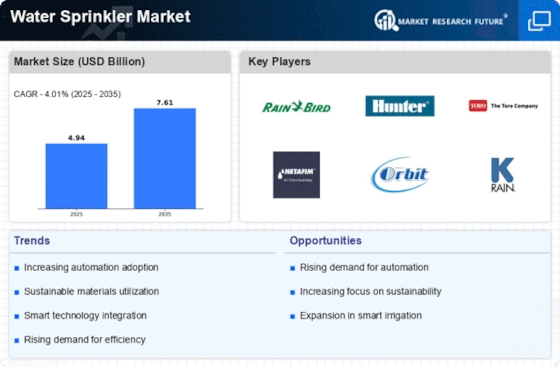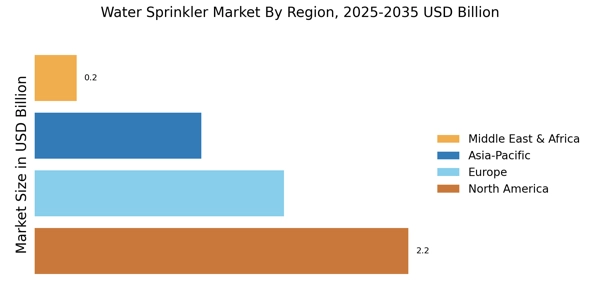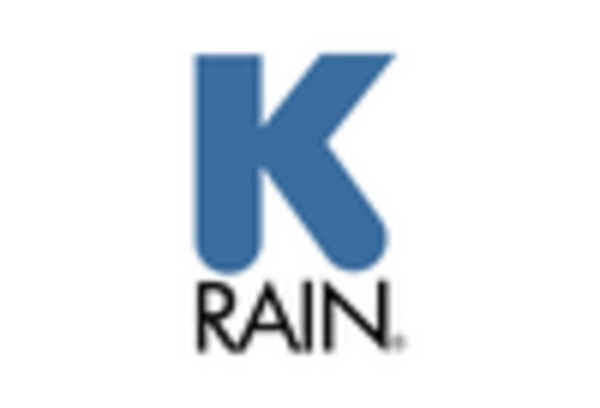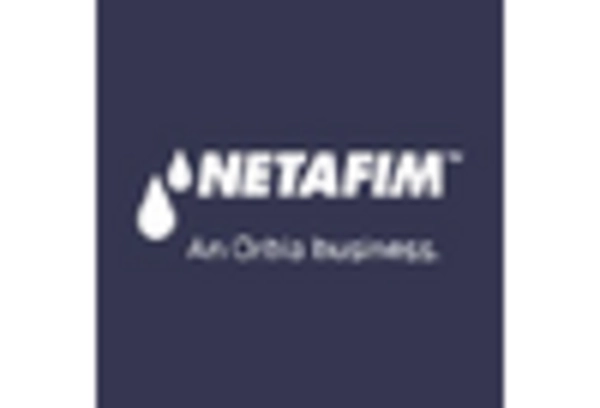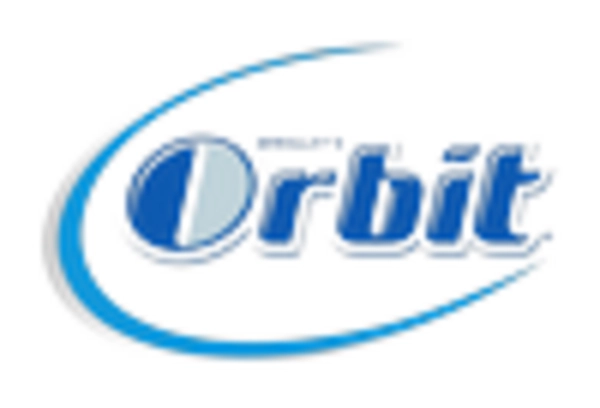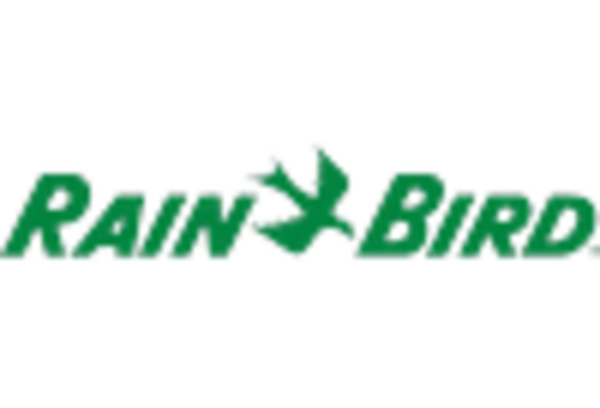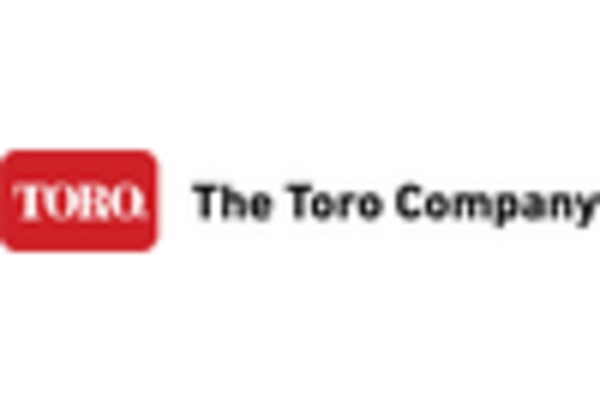Expansion of Agricultural Activities
The expansion of agricultural activities is a key driver for the Water Sprinkler Market. As the global population continues to grow, the demand for food production is escalating, leading to increased agricultural output. This trend necessitates the adoption of efficient irrigation solutions, including advanced sprinkler systems, to ensure optimal crop yields. Data indicates that the agricultural sector is expected to expand significantly, with projections suggesting a growth rate of around 5% annually. This expansion is particularly evident in developing regions, where investments in modern irrigation infrastructure are on the rise. Consequently, the Water Sprinkler Market is likely to benefit from this growth, as farmers seek reliable and efficient irrigation methods to meet the rising food demand.
Urbanization and Landscape Development
Urbanization and landscape development are emerging as influential factors in the Water Sprinkler Market. As urban areas expand, the need for effective landscaping and maintenance of green spaces becomes increasingly critical. This trend is driving the demand for efficient sprinkler systems that can cater to residential gardens, parks, and commercial landscapes. The rise in urban population is leading to a greater emphasis on aesthetic and functional outdoor spaces, which in turn fuels the need for advanced irrigation solutions. Market analysis suggests that the landscaping segment of the Water Sprinkler Market is poised for growth, with an increasing number of homeowners and businesses investing in automated sprinkler systems to maintain their properties. This urban-centric demand is likely to shape the future landscape of the Water Sprinkler Market.
Growing Awareness of Water Conservation
The Water Sprinkler Market is witnessing a surge in awareness regarding water conservation practices. As environmental concerns escalate, consumers and businesses alike are becoming more conscious of their water usage. This heightened awareness is prompting a shift towards water-efficient sprinkler systems that minimize waste and promote sustainable practices. Educational campaigns and government initiatives aimed at promoting water conservation are further driving this trend. For instance, various regions are implementing regulations that encourage the use of efficient irrigation technologies. This growing emphasis on sustainability is likely to propel the demand for advanced sprinkler systems, as stakeholders seek to align with eco-friendly practices. The Water Sprinkler Market stands to gain from this cultural shift, as consumers increasingly prioritize products that contribute to water conservation.
Rising Demand for Efficient Irrigation Systems
The Water Sprinkler Market is experiencing a notable increase in demand for efficient irrigation systems. This trend is largely driven by the need for sustainable agricultural practices and the efficient use of water resources. As water scarcity becomes a pressing issue, farmers and landowners are increasingly adopting advanced sprinkler systems that optimize water usage. According to recent data, the market for irrigation systems is projected to grow at a compound annual growth rate of approximately 10% over the next five years. This growth is indicative of a broader shift towards precision agriculture, where water sprinklers play a crucial role in enhancing crop yields while minimizing waste. The Water Sprinkler Market is thus positioned to benefit from this rising demand, as stakeholders seek innovative solutions to address water management challenges.
Technological Advancements in Sprinkler Systems
Technological advancements are significantly influencing the Water Sprinkler Market. Innovations such as smart irrigation systems, which utilize sensors and automated controls, are becoming increasingly prevalent. These systems allow for real-time monitoring and adjustment of water application, ensuring optimal conditions for plant growth. The integration of IoT technology into sprinkler systems is also gaining traction, enabling users to manage their irrigation remotely via mobile applications. This shift towards automation is expected to enhance efficiency and reduce labor costs, making it an attractive option for both residential and commercial users. Market data suggests that the adoption of smart irrigation technologies could lead to a reduction in water usage by up to 30%, further underscoring the importance of these advancements in the Water Sprinkler Market.


